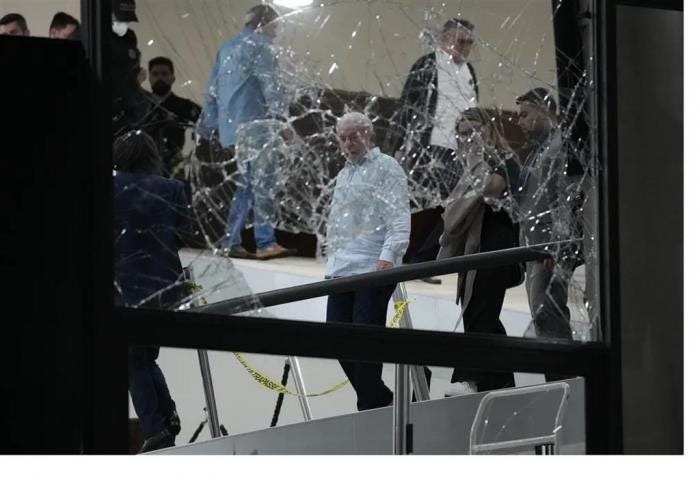On Sunday, January 8, 2023, there was what the Latin America press has been calling an attempted coup d’état in Brazil. Supporters of Jair Bolsonaro invaded and occupied three institutions of the federal government—the National Congress, the Supreme Court, and the administrative center of the executive branch—committing acts of violence and vandalism. President Luiz Inácio Lula da Silva authorized federal intervention in the district to regain control of the institutions. Police were able to remove followers of Bolsonaro, without the use of force, from a nearby camp from which the assaults were launched. Some 1,200 persons were arrested. Some followers of Bolsonaro had previously rejected the assumption of power by Lula and had called for military intervention.
The seizing of buildings, even buildings of governmental power, is not in and of itself a coup d’etat. If a mob seizes the Supreme Court building, for example…



